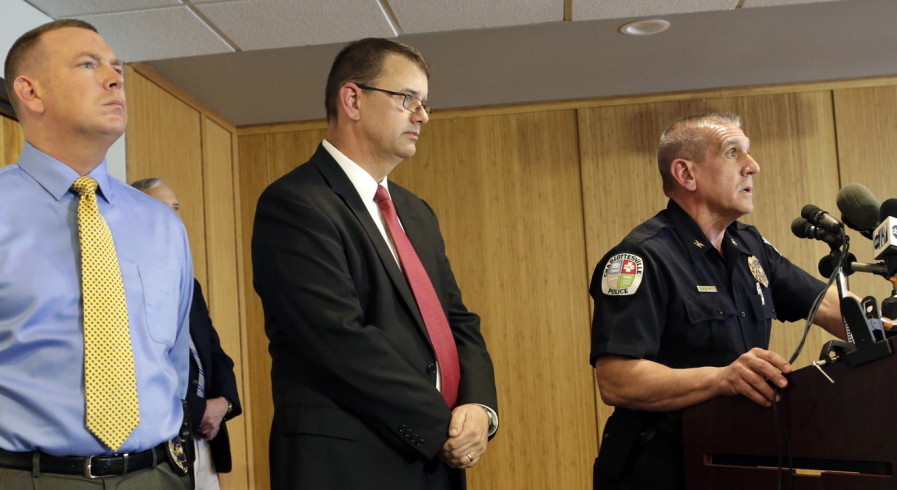CHARLOTTESVILLE, Va. — A five-month police investigation into an alleged gang rape at the University of Virginia that Rolling Stone magazine described in graphic detail produced no evidence of the attack and was stymied by the accuser’s unwillingness to cooperate, authorities said Monday.
The article, titled “A rape on campus,” focused on a student identified only as “Jackie” who said she was raped at the Phi Kappa Psi fraternity more than two years earlier.
It described a hidden culture of sexual violence fueled by binge drinking at the college. Police said they found no evidence of that either.
There were numerous discrepancies between the article, published in November 2014, and what investigators found, said Charlottesville Police Chief Timothy Longo, took care not to accuse Jackie of lying.
The case is suspended, not closed, and the fact that investigators could not find evidence years later “doesn’t mean that something terrible didn’t happen to Jackie,” Longo said.
He appealed for anyone with information about any sexual violence to immediately alert police, and expressed hope that Jackie may one day feel comfortable explaining what really happened.
“There’s a difference between a false allegation and something that happened that may have been different than what was described in that article,” Longo said.
Asked if Jackie would be charged with making a false report, he said: “Absolutely not.”
Jackie’s attorney, Palma Pustilnik, said she would have no comment on the investigation.
Accurate or not, the article heightened scrutiny of campus sexual assaults amid a campaign by President Barack Obama to end them. The University of Virginia had already been on the Department of Education’s list of 55 colleges under investigation for their handling of sex assault violations.
Longo said Jackie’s first mention of an alleged assault came without key details, during a meeting she had with a dean about an academic issue in May 2013. The dean brought in police, but the case was dropped because Jackie didn’t want them to investigate, Longo said.
In any case, the “sexual act” she described that year was “not consistent with what was described” in Rolling Stone.
Almost immediately, news organizations found discrepancies that prompted the magazine to print an apology.
University of Virginia President Theresa Sullivan asked police to investigate, and they called Jackie in for another interview. She showed up with a lawyer and refused to talk.
Rolling Stone eventually asked the dean of the Columbia University Graduate School of Journalism to review its editorial process and the piece by its contributing editor, Sabrina Rubin Erdely. The magazine said Monday that the review’s results are “imminent” and would be published soon.
Investigators spoke to about 70 people, including friends of the accuser and fraternity members, and spent hundreds of hours on the investigation, Longo said. None provided any evidence supporting the claim of a gang rape at the Phi Kappa Psi house.
Send questions/comments to the editors.



Comments are no longer available on this story